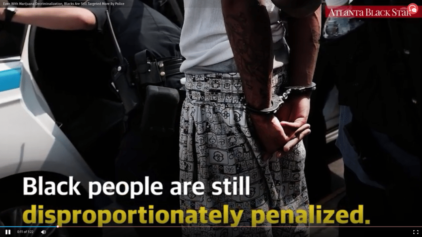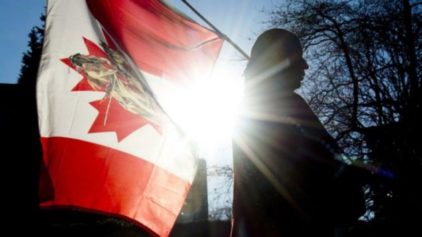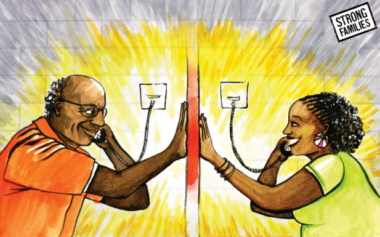Earlier this week, I was arrested and placed in the Atlanta City Jail. Mug shot. Finger-printed. “Random” stop. My crime: Traffic violation. From 1996. In New Jersey. This is not written in error.
In the process of suffering through this ordeal, I stumbled upon some disturbing scenes—scenes that will stick in my head for a long, long time. The view from inside the jail was not pretty; what I saw was a troubling comfort and familiarity too many black men have with the insides of our prisons. For many of them, getting sent back there was like going home.
My ordeal started in a place I haven’t lived in many years. It seems that a non-moving violation ticket was scraped up by someone up in New Jersey with little to do, resulting in the suspension of my New Jersey license (which I have not had in 16 years), which forced my Georgia license into suspension.
I first found out about this last year. I actually paid a lawyer in Jersey $2,500 to get to the bottom of things and an Atlanta lawyer $1,500 to assure all was straight here.
Well, all was definitely not straight, I regrettably learned.
But while the chaos of government bureaucracy is silly and frustrating, it is not the entire point of this piece. The points are multiple, starting with the “random” stop.
Being harassed for driving while black is frustrating beyond words. Only to have been stopped as I have—about a dozen times in the 16 years I have been in the Atlanta area—can you really understand the infuriating feeling that comes with it.
Each time I have been “randomly” pulled over I was in the South DeKalb suburb of Atlanta or in Southwest Atlanta—both areas highly populated by African Americans. And only two times did non-African American officers detain me.
What does that say?
The answers are many, and all of them sad. I asked the cop who apprehended me why he chose me. He got defensive. “It’s not a violation of your rights to do a random check,” he said.
“Really? It isn’t? It feels like it,” I said. “Still, why me?”
“I can’t speak for other officers,” he said. “I just pretty much check everyone.”
“Wow,” I said. “That seems like a lot, don’t you think?”
The conversation slowed at that point. He ended up saying, “I wish I didn’t have to do this to you.”
I tend to believe the demands of an officer’s job are so intense and African-American criminals are so rampant that cops are desensitized to discern one black man from the next. We’re all criminals until proven otherwise. But that’s just not acceptable.
So I’m in jail, and I look around and say to myself, “What the hell am I doing in here?”
I was incensed. More than that, I was embarrassed and humiliated. Once I got over those emotions, which took about five minutes, I was sad. Not about my situation—I would be bailed out eventually—but by the plight of the dozens and dozens of young men (and some young ladies, too) I witnessed come and go in my 10 hours there with no concern on their faces or in their gait.
It was a familiar place to most of them, so much so that they knew the correction officers by name—and vice versa. It’s one thing to read about how our African-American young men are caught up in the system. It’s quite another to see it first hand.
Soon, I was studying the place instead of detesting it. We were in a big room, a sort of recreation area with a couple of TVs, one on BET, the other on ESPN. On the perimeter were small cells that smelled of a combination of urine and sweat—and oppression. I have walked through the slave dungeons in Cape Coast, West Africa, and the stench of the cells was just as punitive to the senses. Needless to say, it was not a good day for my bladder, as I held my water longer than I have since I was a kid.
It was a gut-wrenching, humbling time. I had work to do, people to contact, free air to breathe. With no cell phone at my disposal, I felt hopeless and, well, not free. The correction officers demanded we raise our hands if we had questions. To hold on to my dignity, I refused to do that. I just walked up to them and said what I needed to say, which usually was about how much longer before I was released.
Most of my fellow inmates seemed totally comfortable being confined. Many of them knew each other and hugged when they reconnected as if they were at a family reunion in the park. I found that very sad.
They laughed about their crimes and bragged about the time they had to serve—or had served. One guy said he was in for soliciting prostitution. Another said he had robbed someone who used to be a friend. Still another was in a street fight outside a liquor store. With no shame, they ran off their offenses as easily as you’d boast about being promoted on your job.
And I could not help but think about the damage being caught up in this system has had on our communities. Many of these men were fathers and uncles. So how many black youths, in need of an example or leadership or just a dad to be there for direction and discipline, end up on the same aimless path because that’s what they saw in the men in their lives? Too many. It is the leading cause of the death of our communities, where crime and violence inflicted is black on black — and generational. Again, sad.
When it came time to eat, it occurred to me that I stood out among my other confined brothers. Four men came up to me, saying, “I know you’re not going to eat the food. Can I get yours?”
Gotta give it to them: They had me pegged. The bologna sandwich and cookies did not appeal to me. After getting their “food,” I was amazed that more than half of the men started trading. “I got a sandwich for some cookies” they yelled, and vice versa, and they reached across chairs making the exchanges. It all seemed so normal to them, so routine. Sad.
I studied the correction officers, too. What a joyless job, dealing daily with a mob of people who have essentially given up on having a productive life. There was a guy who was so out of control that they locked him in one of the small cells. He spent the next 20 minutes of so banging and kicking on the door. I seemed to be the only one there who thought that was strange.
At one point I counted 45 men waiting either to be released or sent “upstairs” to the real part of the jail. Two were white men who were homeless, three were Latinos who had immigration issues. The rest were black men ranging in age from 18 to a meek gentleman who looked about 80. Too many to believe were complaining that they had not gotten a tan prison-issue jump suit with ACDC on the back so they could be sent “upstairs.”
Around 10 p.m., I made bail (it’s good to have good friends). I left there sad believing that not much good would happen in the lives of those I left behind. And I was angry knowing the wretched system would never be fixed.
And I learned something about myself through this ordeal: I actually can survive without my cell phone for 10 hours.
Curtis Bunn is a best-selling novelist and national award-winning sports journalist who has worked at The Washington Times, NY Newsday, The New York Daily News and The Atlanta Journal-Constitution.


